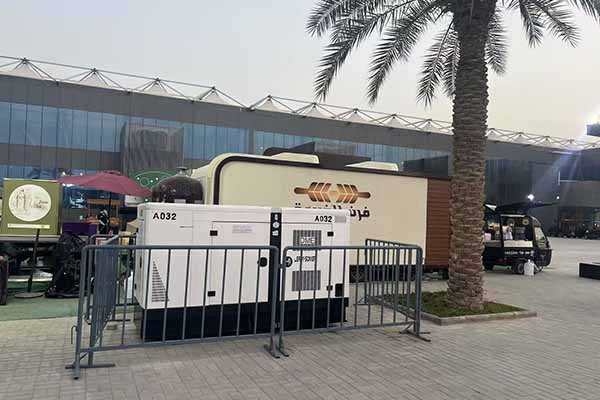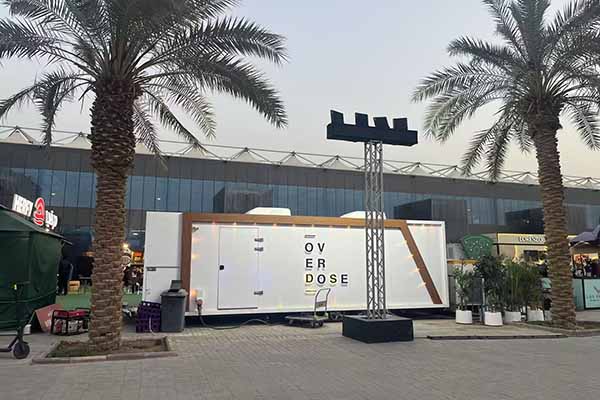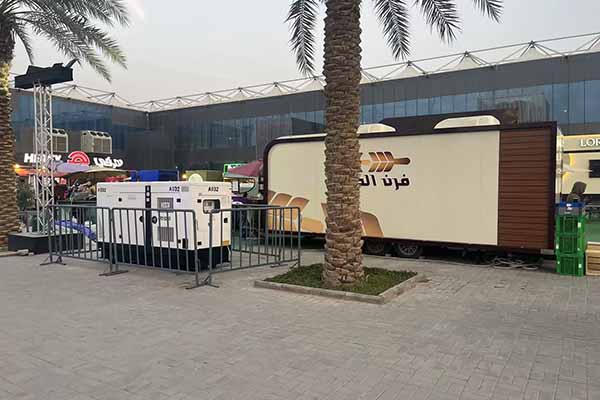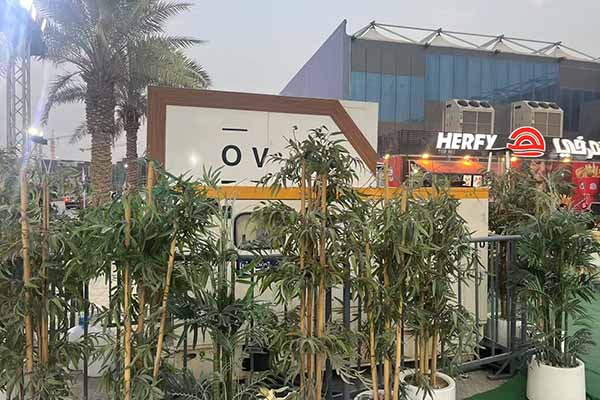
Renting a commercial generator1 is a practical solution for temporary power needs. However, preparation is key to ensuring that you select the right generator and avoid operational issues.
Planning ahead and understanding your power requirements2 is essential when renting a commercial generator.
Here’s a guide to help you navigate the process and ensure you make the right choice.
What Factors Should You Consider Before Renting a Commercial Generator?
Renting a commercial generator is not just about picking a unit; it’s about finding the right one for your specific needs.
Key factors to consider include power capacity, fuel type, rental duration, and support services.

Key Considerations Before Renting a Generator
-
Power Requirements
- Make sure to assess the power needs of your business. Calculate the total wattage required to run all essential equipment.
- Consider not only the peak load but also any future power needs you may have during the rental period.
-
- Diesel and natural gas are the most common fuel types. Diesel generators typically offer longer runtimes and higher efficiency, while natural gas can be more environmentally friendly.
- Check fuel availability in your location and whether the rental company offers refueling services.
-
Rental Duration
- Whether you need the generator for a few days, weeks, or months will affect the cost. Long-term rentals may offer lower daily rates.
- Factor in maintenance costs and service agreements for long-term rentals.
-
Noise Levels
- Commercial generators can be noisy, especially large ones. If noise is a concern (for example, in residential areas), you may want to rent a quieter model or consider soundproof enclosures.
-
Maintenance and Support Services4
- Ensure the rental company provides 24/7 support, especially if you’re renting a generator for a critical application.
- Ask if maintenance and repairs are included, or if you will be responsible for them during the rental period.
Checklist for Renting a Generator
| Factor | Consideration | Action Required |
|---|---|---|
| Power Requirements | Total wattage needed, peak loads | Calculate total power needs |
| Fuel Type | Diesel or natural gas, availability | Choose based on location and need |
| Rental Duration | Short-term or long-term needs | Negotiate rental terms |
| Noise Levels | Impact on surrounding areas | Opt for quiet generators or enclosures |
| Support Services | 24/7 maintenance and troubleshooting | Confirm support and response times |
Understanding these factors helps you choose the right generator for your project, avoiding costly mistakes.
How Do You Calculate the Power Needs When Renting a Commercial Generator?
Accurate power calculation5 is essential when renting a generator to ensure it can handle the load efficiently.
Incorrect calculations can lead to under or overloading, which may damage equipment or lead to unexpected downtime.

Steps to Calculate Power Requirements
-
List Your Equipment
- Make a list of all the equipment you plan to power with the generator. This includes HVAC systems, lights, computers, industrial machinery, and any other electrical loads.
-
Identify the Wattage for Each Item
- Look at the power rating (in watts or kilowatts) for each piece of equipment. The manufacturer’s specifications or the nameplate on the equipment should list these values.
- Be sure to check both the running and starting wattage6 for equipment like motors or compressors that have high inrush currents when starting.
-
Calculate the Total Wattage
- Add up the total wattage7 for all equipment that will run simultaneously. Don’t forget to include a margin (10-20%) for safety and unexpected power demands.
-
Consider Starting Wattage for Motors
- Some equipment, like motors and refrigerators, require a higher starting wattage when first turned on. Make sure to include this peak wattage in your total power requirement.
-
Choose the Generator Based on Your Total Wattage
- After calculating your total wattage, choose a generator that can handle the load comfortably. It’s recommended to select a generator with a slightly higher capacity (20% more) than your total requirement to account for power surges.
Power Calculation Example
| Equipment | Running Wattage (W) | Starting Wattage (W) | Total Wattage (W) |
|---|---|---|---|
| Air Conditioner | 2000 | 3000 | 5000 |
| Lighting | 500 | 0 | 500 |
| Computers | 1000 | 0 | 1000 |
| Industrial Machine | 3000 | 4000 | 7000 |
| Total | 5500 | 7000 | 14,500 |
Based on this calculation, you would need a generator that can supply at least 14,500 watts of running power with a little extra capacity for safety.
What Is the Process of Setting Up a Commercial Generator Rental?
Once you’ve selected the right generator, the next step is to ensure proper setup for smooth operation.
Setting up a commercial generator8 involves logistics, placement, and connection to your power systems.

Steps for Setting Up a Generator Rental
-
Delivery and Placement
- Work with the rental company to coordinate the delivery and positioning of the generator.
- Ensure that the location is level, well-ventilated, and accessible for maintenance and fuel delivery.
-
Fuel Supply and Connections
- If renting a diesel generator, confirm the fuel requirements and arrange for regular refueling.
- Make sure all fuel lines and connections are secure and leak-free.
-
Electrical Connections
- Depending on your setup, the generator may need to be connected to a transfer switch or distribution panel.
- Ensure that licensed electricians handle the connections to ensure safety and compliance with local electrical codes.
-
Initial Testing and Load Testing
- Once everything is set up, run initial tests to confirm the generator operates as expected.
- Perform a load test to ensure the generator can handle the actual electrical load. This helps identify any issues before full-scale operation.
-
Maintenance and Monitoring
- Check in with the rental company for routine maintenance, such as oil changes, filter replacements, and general monitoring.
- Many rental companies offer 24/7 support for troubleshooting and emergency repairs.
Setup Checklist
| Task | Action Required | Notes |
|---|---|---|
| Delivery & Placement | Ensure proper positioning | Avoid tight spaces or obstructions |
| Fuel Supply | Arrange for refueling | Check availability and delivery times |
| Electrical Connections | Use licensed electricians | Follow local electrical codes |
| Initial Testing | Run generator and load test | Confirm proper functionality |
| Maintenance & Support | Schedule regular maintenance | Use 24/7 support services if available |
Setting up the generator properly ensures safe and efficient operation throughout the rental period.
Conclusion
Renting a commercial generator requires careful consideration of power needs, fuel type, rental duration, and setup logistics. By accurately calculating your power requirements and working with the rental company, you can ensure a smooth and hassle-free experience.
-
Exploring this resource will provide insights into the advantages of renting a commercial generator for your needs. ↩
-
Understanding your power requirements is crucial; this link will guide you in accurately assessing them. ↩
-
Different fuel types can significantly impact efficiency and cost. Discover the pros and cons of each fuel type here. ↩
-
Maintenance and support can prevent costly downtime. Learn why these services are essential for your rental here. ↩
-
Understanding power calculation is crucial for selecting the right generator. Explore this link for detailed insights and tips. ↩
-
Starting wattage can significantly impact generator selection. Learn more about its importance and how to calculate it effectively. ↩
-
Determining total wattage is key to ensuring your generator meets your needs. Discover comprehensive guides on this topic. ↩
-
Exploring this resource will provide insights into the advantages of commercial generators, helping you make informed decisions for your rental needs. ↩

